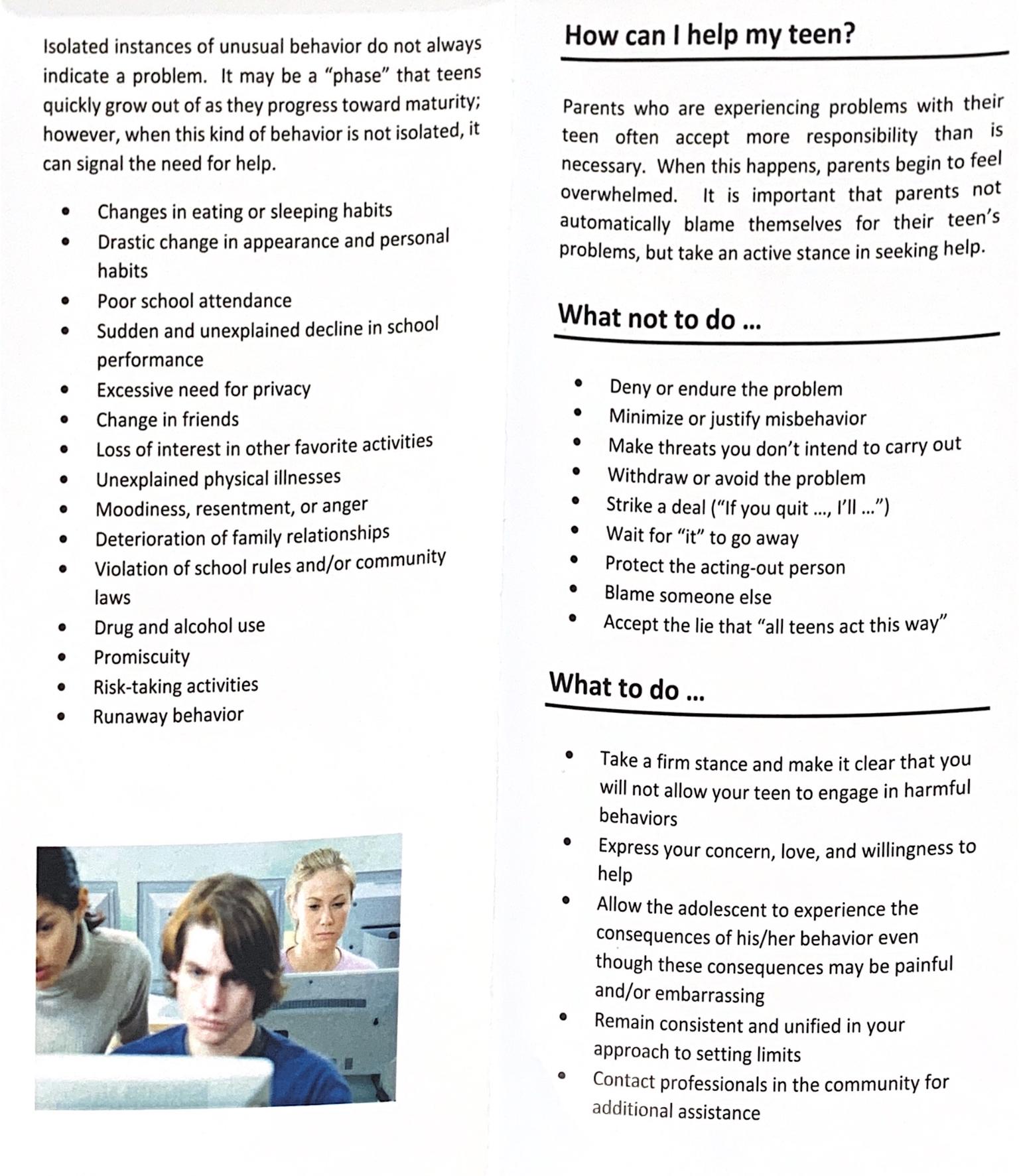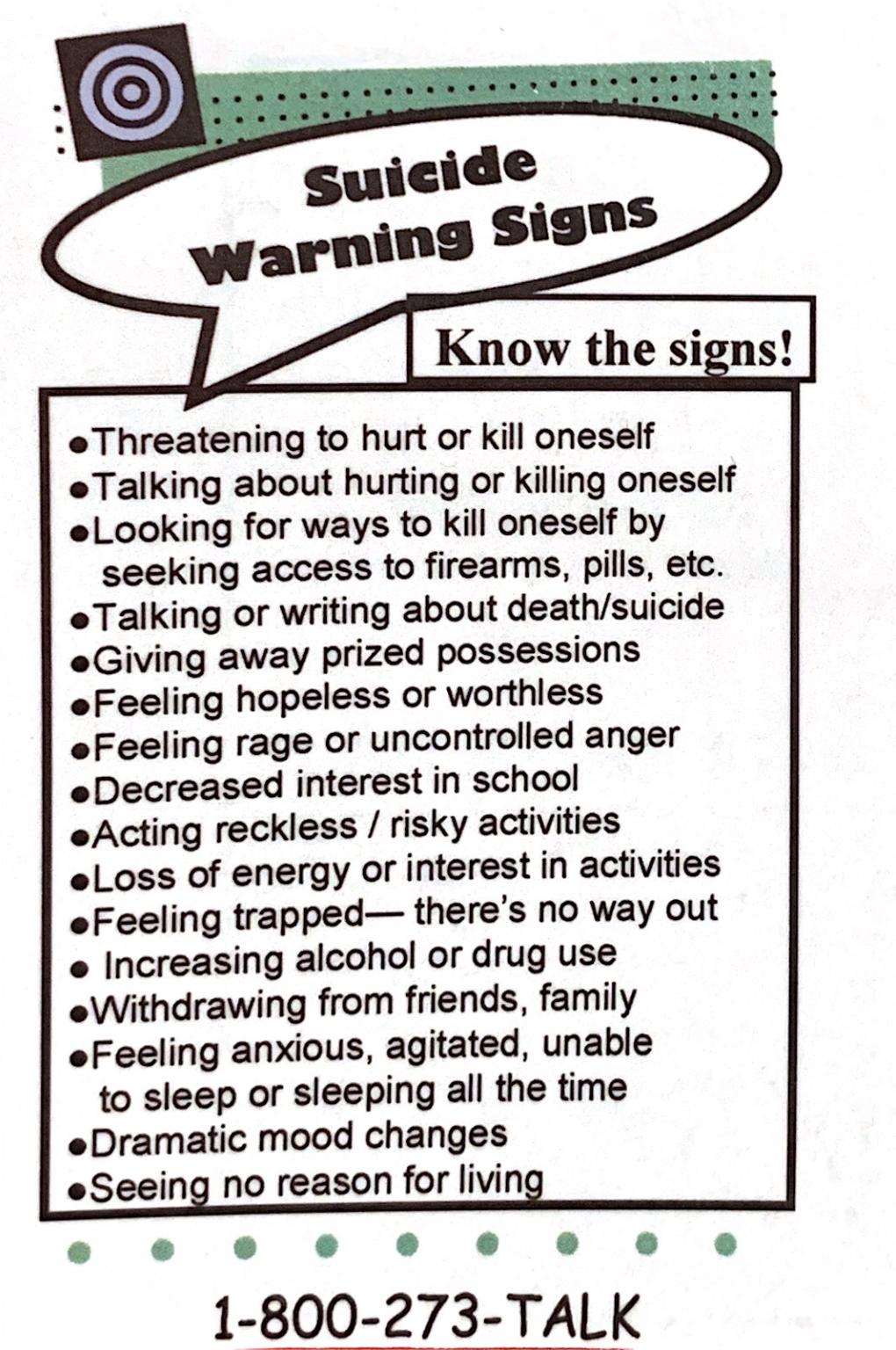Mental health at the high school level
March 10, 2020
There is no doubt that mental illness is a rising issue facing teens today, but does Manheim Township really understand how much of a toll school takes on students’ mental health? Rates of depression and anxiety have risen exponentially among teens today, a problem made worse by growing competition in schools and the prevalence of social media use.
According to school counselor Michelle Stoudt, social media can strongly affect the stability of teens’ mental health. “Anybody feels more free to say things through a social media platform rather than saying [them] face to face,” she said; communication on an online platform is much easier than communicating to someone face to face. Only talking to someone on the internet makes people unable to cope with strenuous situations happening in the real world. It gives people the desire to not have to make eye contact with whomever they may be communicating with. Even if someone shares beautiful posts and pictures of their life online, nine times out of ten it’s not reality, stated Stoudt
The more that teens use social media, the more that they are comparing their lives to someone else’s, and that longing for the quixotic life portrayed on their phone screens increases. “You’re trying to measure up to somebody that looks like their life is so much better than yours,” said Stoudt, which is something that is detrimental to a teen’s mental health because they don’t know what that person’s everyday life is like. Most of the time, they’re just trying to measure up to something that isn’t reality.
Sara Judge, a Manheim Township school psychologist, also said that there is a predisposition to developing a mental illness if someone in your family already has one. However, they are not inherited the same way that characteristics like hair and eye color are. They are caused by both environmental factors—such as trauma, emotional harm, and substance abuse—and genetic inheritance, according to the American Academy of Pediatrics.
Judge also stated that another major factor, besides school, that affects kids’ and teens’ mental health is how they are raised. It’s hard to be a teen during this time and age because of how big of an influence social media has on society and the constant competition that is present in schools and sports. However, Judge said that it’s “valuable to teach kids at a young age how to appropriately handle their emotions and [how to] express and feel their emotions–even their bad emotions.” Adults and teachers want kids to be happy all the time, and it’s important that kids understand it’s okay not to be okay. “The ‘Oh don’t cry honey it’s OK’ thing can be detrimental if a kid hears that growing up,” Judge said because they feel like something is wrong with them if they’re sad; making sure kids feel comfortable sharing their emotions at a young age can help them cope with them when they are older.
Students at Manheim are also able to elaborate on exactly what they’ve been feeling and the many different factors—including school—that has worsened their mental health. Sophomore Vanna Jiang said that she has always been struggling with mental illness. Jiang said, “It’s like a battle all the time..there’s never one pinpoint answer and that’s more difficult to cope with since [she] can never really make [her]self feel better.” Jiang also voiced that she thinks there is a stigma to mental illness and that teens today feel like they have to be perfect at everything for fear of judgement, which is not a reality for any high school student because no one can be perfect. According to Jiang, school takes a huge toll on her mental health: “I feel like teachers are throwing homework and projects at us left and right, and it can get too much,” said Jiang. The shame of always having to be perfect comes into play with school because there’s this constant belief that the only way to succeed in life is by getting good grades, getting on honor roll, and being accepted into a good college.
Sophomore Sofia Biever also deals with the effects of putting too much pressure on herself into getting good grades. Normally Biever doesn’t struggle academically, however she tends to stress herself out a lot over tests and quizzes. Sometimes it’s gotten to the point where she would break down crying in multiple classes. “I don’t think that should be happening,” said Biever. She doesn’t know how to deal with this stress that she is constantly under and has stated that mental health has become more prevalent within teens due to this stress that they’re carrying. Although teens aren’t the only ones feeling stressed, their stress is at greater intensity than what their parents were feeling at age 16–according to Biever. “I always feel like I should be doing better,” said Biever.
School academics seem to have taken over students’ lives; however, this leaves them with little time for the extracurriculars that they love doing and that colleges look for. Katie Miller, a junior at Township, was involved in many time-consuming extracurriculars, such as softball, link crew, chorus, and Model UN, that take students on multiple day-long field trips, leaving them to make up a day’s worth of missed work. On top of this, Miller also has a job outside of school. Trying to do all of these activities on top of taking AP and honors classes has increased Miller’s stress level. However, she stated that some teachers are good with helping students cope with stress, but a lot of them don’t realize that their class isn’t the only one that their students are taking. This causes teachers to pile on immense amounts of work for just one course, leaving students with multiple hours of homework each night.
With mental illness and stress rising in teens, Township has established some programs and changes to help any student who might be struggling. One major program intended to help struggling students is the Student Assistance Program (SAP). SAP meets about twice a week and is run by school counselors, teachers, school nurses and psychologists, a home school visitor and Mr. Johns —according to Mrs. Stoudt, one of the heads of SAP. SAP allows someone — whether it’s a teacher, student, parent, counselor, etc. — to send in a referral on a student who they think is showing signs of a mental illness or that they think just might need to talk to a counselor; a common example is a teacher sending in a referral because they noticed a behavioral change within a student (maybe the student started falling asleep in class, or started to behave different than their usual self). After receiving a referral, according to Mrs. Stoudt, all of the students’ teachers will be directed to observe that child and how they are behaving in class. If multiple teachers are reporting obvious changes in the way that the child is behaving and acting, then the parents are contacted and the student is called in for an assessment. Once called in for the assessment, the student will fill out a questionnaire that will help to decide if they need to be set up with a counselor.
A student can be referred to SAP for many different reasons other than just for mental health. A referral can be sent if a student is showing signs of harming themselves and/or others, or a student can be referred if they’re showing signs of substance abuse. SAP referrals are sent in more often than not. According to Mrs. Stoudt, during one school day there were 9 SAP referrals and, as of November 15, 2019, there have been about 43 SAP referrals this school year; last year about 102 students were reported to SAP, stated Mrs. Stoudt.

While SAP is a great program that provides an immense amount of help to students in need, many people are unaware of the signs to look out for if someone is struggling with mental illness. “There are times when we are all sad,” stated Mrs. Stoudt, but it’s important to know the difference between someone being sad and someone needing help. Most teens can be put into a funk for a couple of days if their boyfriend or girlfriend breaks up with them. However, if the feeling of sadness doesn’t seem to go away for a couple of weeks, then they’ve reached a point of concern where they might need to consider seeking help.
On top of not being able to get out of that “funk”, there are a considerable amount of signs to look for in someone who might be depressed. Someone who normally dressed up for school, or work, may not put as much effort into their appearance anymore, Stoudt said. This could include them not wanting to shower, brush their teeth or hair and even not want to get out of bed. Someone struggling with depression and/or anxiety may start not coming into work or school and even lose interest in the things they used to enjoy. Stoudt said that this is not a change of interest–someone who used to play lacrosse now playing field hockey–but it’s a total lack of motivation where they want to go out and do their hobbies, but they can’t seem to find the energy or motivation to. While most of those are signs of depression, some major signs and symptoms of anxiety include: feeling restless/edgy, reacting strongly to things that aren’t the biggest deal, and someone who is on edge most of the time, according to Mrs. Judge.

With the increasing expectations of achieving good grades and the ongoing competition within sports and extracurriculars, teens are experiencing anxiety and depression at more alarming rates than before. However, no one is ever alone. There are multiple resources within Township, including teachers, counselors, and psychiatrists, who are willing to help any,and all,students in need of some support–even if it might not seem like a huge deal. Just remember to watch out for the signs of depression and anxiety within yourself and the people around you.
























Harold A Maio • Mar 11, 2020 at 10:42 pm
—Jiang also voiced that she thinks “There is a stigma to mental illness”.
I wonder if she ever thinks about who placed that thought in her mind?